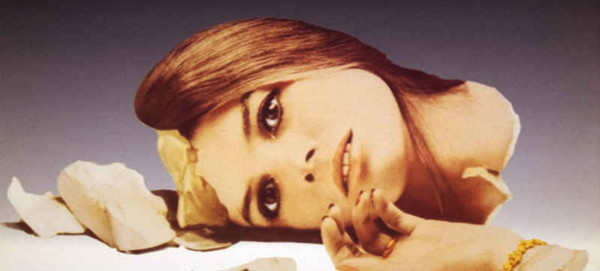I have to say that I’m rather glad to see at least a couple of mainstream articles questioning the mass marketing impulses behind Breast Cancer Awareness Month, aka October. The marketing hype reminds me a little of the “Think Pink” musical sequence from the movie Funny Face, with Fred Astaire and Audrey Hepburn. If you can take the scene (which doesn’t feature either star), here you go:
Dr. H. Gilbert Welch, a medical professor and author, writes in the LA Times that the think-pink emphasis of breast cancer awareness month may be somewhat misplaced:
I worry that the campaign has led women to be more fearful of breast cancer than they need be: the “1 in 8” or “1 in 9” statistic, in particular, serves as a poster child for how to exaggerate risk (both because it encompasses an entire lifetime and because it’s not the chance of dying but of being diagnosed)
And Chris Hileywriting for The Independent/Daily Mail points out that the hype amounts to a marketing frenzy that puts all the emphasis on breast cancer while detracting from attention that other serious diseases should be getting as well.
From my perspective, I think breast cancer awareness is a good thing. Women ought to know what signs to look for and which precautions to take. But the hype of the pink ribbon (or the politics associated with it) seems to preclude any serious discussion about the causes of breast cancer.
According to the American Cancer Society, more than 85 percent of the women who get breast cancer have no family history of the disease. This number alone should get our attention because it suggests that the disease might be triggered or caused by something external.
Yet, amidst the pink hype we never hear much discussion of what that might be. Just wear your ribbon, do the Race for the Cure, get your mammogram, and spend money on all things pink. (I won’t even begin to get into the Susan B. Komen Foundation’s support of Planned Parenthood or the blackout on any discussion of theabortion breast cancer link. Seehere, too.)
Meanwhile, as of 2005 the World Health Organization listed hormonal birth control as a known carcinogen, i.e. something that can cause cancer. According to the American Breast Cancer Society,
Other factors that increase breast cancer risk include a long menstrual history (menstrual periods that started early and/or ended late in life), obesity after menopause, recent use of oral contraceptives, postmenopausal hormone therapy (especially combined estrogen and progestin therapy), never having children or having one’s first child after age 30, or consumption of one or more alcoholic beverages per day. [Emphasis mine]
This monthThe New York Times, once again, raised the alarm over hormone replacement therapy. All fine and good, but HRT uses some of the same synthetic hormones found in hormonal birth control. Yet in all the time I’ve seen the NYT (or any other major publication) discuss HRT, I’ve yet to see any connection to hormonal birth control, despite the fact that major health organizations are now quietly acknowledging the threat it poses. And most women use some form of hormonal birth control (e.g. the pill) during their lives. It might be worth discussing…
Like I said, I’m fine with some of the think-pink theme if it creates real awareness, but if it’s it just hype (or fear mongering) with no real discussion about key factors that could impact the disease, then I’d rather skip it and move on to something more substantial.
.















